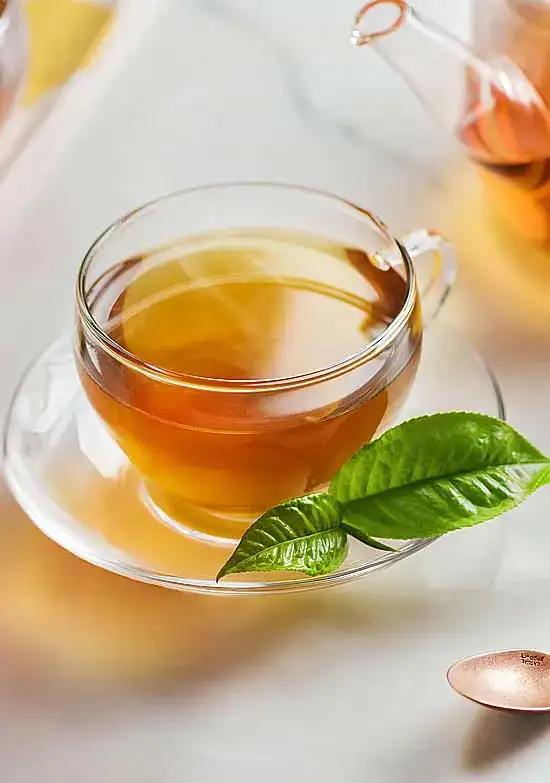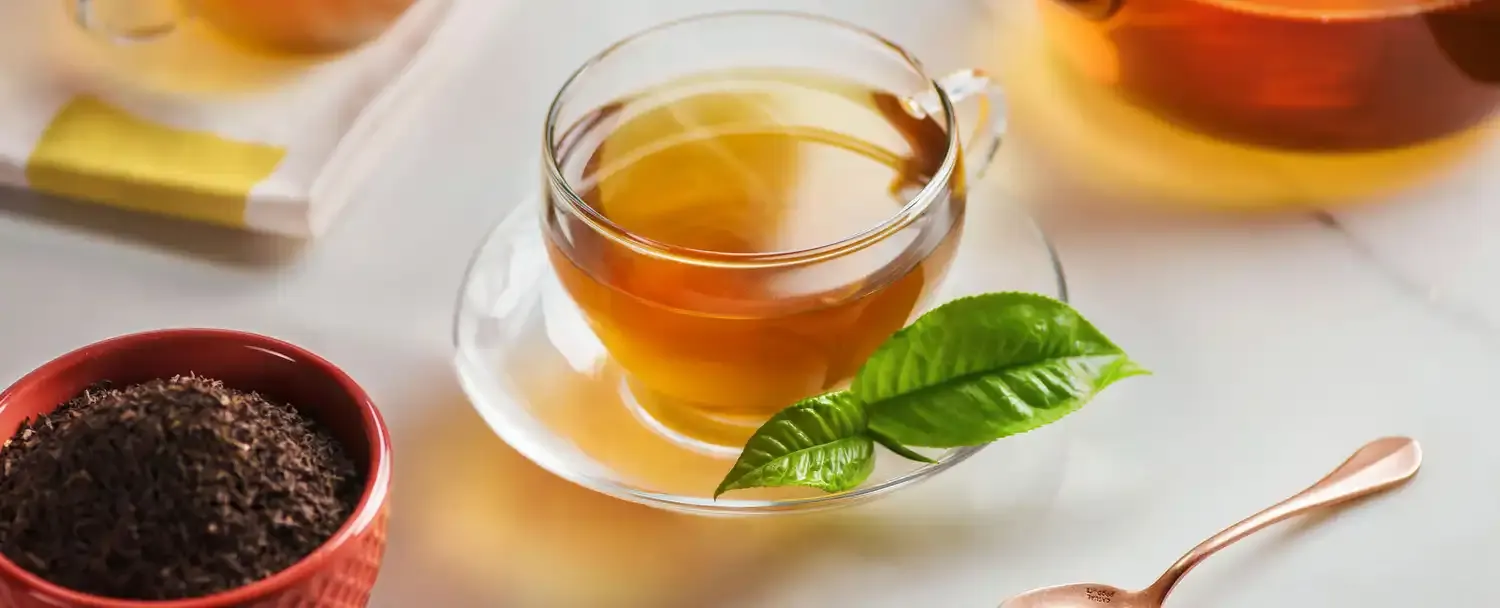Our delightfully rich and robust black tea blend is the perfect way to shake off the cobwebs, throw back the curtains and bring a ray of sunshine into your day. Its bold and enlivening flavor comes from our dedication to only using carefully selected leaves picked at the peak of their freshness.
It’s the quintessential cup of tea—a bright, sunny flavor. With over 4000 hours of pure Kenyan sunshine soaked into every teabag, we think our black tea really is a cupful of sunny, feel-good vibes.
BENEFITS OF BLACK TEA
Lipton black tea can help you make the most of every day. It gives you the uplift you need to stay focused and embrace whatever comes your way.
Tea is a delicious way to help you achieve the recommended daily fluid intake of 2 to 2.5 liters a day.1 The first ingredient in tea is water, which is needed by your body to run at its best. Tea is 99.5% water making it just as hydrating and refreshing as water.2,3Sit back, sip, enjoy!
A daily consumption of at least 400mg flavonoids may help maintain a healthy heart as part of a diet consistent with dietary guidelines. Tea is rich in flavonoids, the content levels vary across tea types.4
Tea has less caffeine than coffee*. For those looking for less caffeine, black tea has about half the caffeine as coffee and keeps you hydrated!
Unsweetened tea contains zero calories: Choosing beverages with no added sugars in place of sugar-sweetened beverages can contribute to a healthy diet consistent with dietary guidelines.5Looking for a twist? Try adding lemon or mint for a fresher take on your tea.
TEA TIME
Black tea is a classic breakfast drink for a reason - the blend awakens your senses and gets you feeling lively and in the zone after rolling out of bed. We recommend serving it with a splash of milk to properly ignite its robust flavors. The full taste and enticing aroma kick off your day in a punchy and robust way, setting you up to take on rain or shine.
For a perfect food pairing, a breakfast tea needs breakfast foods. Whether you’re partial to a bacon and egg bagel or a super-greens-smashed-avocado-and-activated-cashew-smoothie-bowl as the first meal of the day, our black tea is the ultimate breakfast beverage that enhances the character of just about anything. So fire up the kettle and get the day off to a tea-terrific start!
GET THE BEST FROM YOUR BREW
To get all the benefits of black tea, we recommend letting your tea bag steep for a solid 2 to 3 minutes in freshly boiled water until it turns a rich amber color. Of course, feel free to adjust according to your strength preference – a longer steep time results in a richer flavor. Got milk (tea)? You must give black tea with milk a try! Just add milk and witness how tea’s more powerful flavors are softened into a smoother taste and texture.
BEYOND THE BREW
Now that you know about the benefits of black tea, find out how Lipton benefits others through our sustainable sourcing practices and partnership with the Rainforest Alliance!
Founder Sir Thomas Lipton felt that tea should be a drink for everyone, not just the wealthy, so he strived to make packaging and shipping less expensive. Read more about his legacy here.
For thousands of years, tea has been getting us ready to seize the day ahead. Learn more about its fascinating history.
The European Food Safety Authority (EFSA) recommends 2L and 2.5L fluid intake per day for women and men, respectively
Ruxton CH and Hart VA. Black tea is not significantly different from water in the maintenance of normal hydration in human subjects: results from a randomized controlled trial. Br J Nutr. 106(4): 588-95, 2011.
Ruxton CH, Phillips F and Bond T. Is Tea a healthy source of hydration? Br Nutrition Foundation. Nutrition Bulletin, 40, 166-176.
US Department of Agriculture Database for the Flavonoid Content of Selected Foods Release 3.2. September 2015, slightly revised November 2015. 1 cup of fresh orange contains approx. 37mg, 1 medium sied red apple contains approx. 45 mg, 1 cup of cooked broccoli contains approx. 3 mg
U.S. Department of Health and Human Services and U.S. Department of Agriculture. 2015 – 2020 Dietary Guidelines for Americans. 8th Edition. December 2015. Available at https://health.gov/dietaryguidelines/2015/guidelines/.

